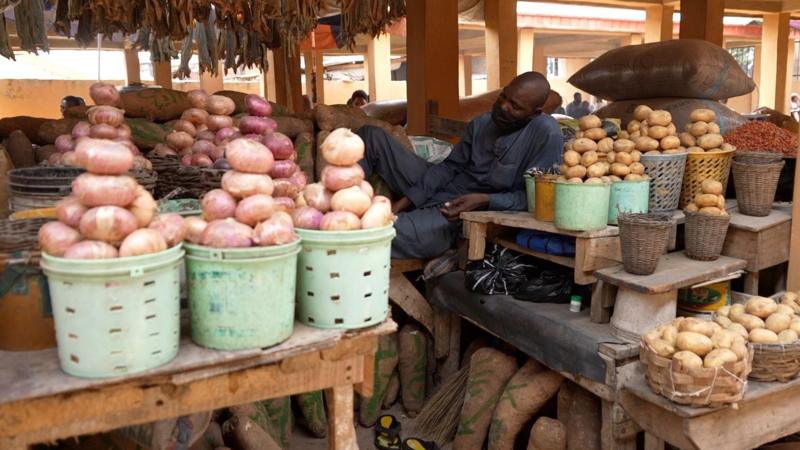With the rising inflation causing essential items, especially food, to become more expensive in Nigeria, it’s becoming very difficult for people to cope. Hunger is affecting many people across the country, leading to protests nationwide. Earlier in February, Nigerian President Bola Tinubu stated that “Nigeria can feed itself.” President Tinubu also emphasized that “the government will not import food” and established a committee to address the issue of hunger and food scarcity in the country. He also directed all security agencies in Nigeria to collaborate with governors to end the hoarding of food commodities for profit or to punish Nigerians.
These are measures the Nigerian government is implementing to alleviate the suffering of Nigerians. However, despite these efforts, people are still protesting against the high cost of living, especially as prices of goods and services continue to fluctuate rapidly.
How can people survive this hardship? Hauwa Mustapha, an economist and analysts suggests the following measures:
- Grow your own food: Despite insecurity affecting food production in many parts of the country, Mustapha suggests that people can at least grow some of the food they consume. “You can plant vegetables, tomatoes, peppers, etc., in your garden, backyard, or even in sacks. This will help reduce the money you spend on these items,” she says.
- Reduce your transportation expenses: Mustapha advises people to minimize unnecessary travel as it leads to increased transportation costs. “Even for work, if possible to work from home, maybe two days a week, then work from home. This will reduce your fuel consumption if you have a car or lower transportation costs for those who don’t,” she says. She also suggests that the government should reduce the number of days workers physically go to the office.
- Manage your energy costs: With many people using prepaid meters in their homes and electricity tariffs on the rise, Mustapha recommends managing electricity usage by turning off unused appliances and considering cheaper cooking options such as gas.
- Implement price control mechanisms: Mustapha emphasizes the need for the government to stabilize prices. “A situation where a bucket of garri costs ₦2000 today and ₦2200 tomorrow is not good at all. Prices should not rise rapidly like that. The government should put in place price control mechanisms to ensure some level of stability,” she says. She also suggests reducing taxes on vehicles transporting food items between states to prevent food price hikes.
Alexta Wilcox, a financial expert, also shares some survival tips:
- Avoid panic buying: Wilcox advises people not to rush to buy unnecessary items. They should only purchase essentials they need immediately.
- Reduce expenses: People should cut down on unnecessary spending during this period as it’s not the time for extravagant spending.
- Minimize waste: Nigerians tend to waste a lot, especially during celebrations. Wilcox suggests reducing expenses on parties and other ceremonies.
- Invest wisely: This is the time to invest in profitable ventures like treasury bills and other investments that yield high returns.
In summary, these measures can help individuals navigate the current economic challenges and survive the high cost of living in Nigeria.
